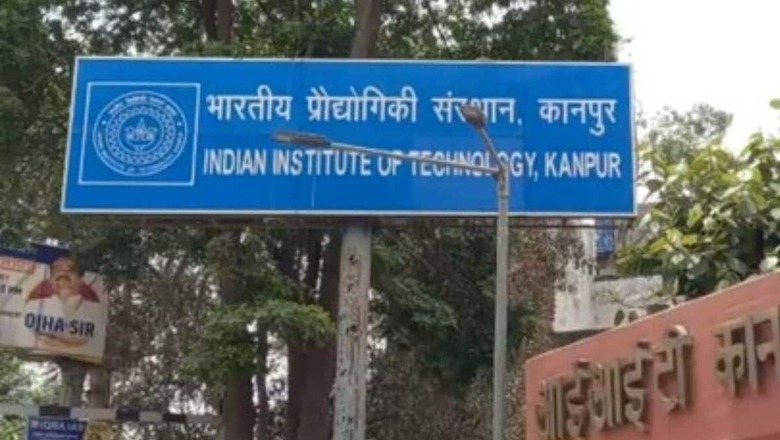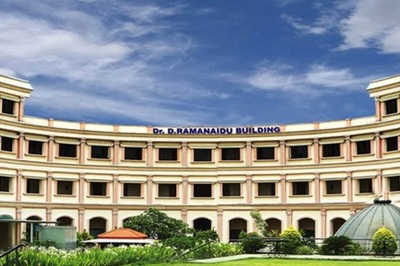
views
At least 80 per cent of those pursuing PhD programmes have faced mental health issues; 60 per cent have at least once thought of dropping out of the research programme while many stated being discriminated against by guides in the face of “favouritism”, “elitism” and “casteism”, an internal survey on challenges faced by research scholars at the Indian Institute of Technology (IIT)-Kanpur published by its major students’ body said, following three incidents of student suicides within the past month, two of whom were research scholars.
According to the survey, based on responses from 200 research scholars on campus, on questions about mental health, around 80 per cent of the respondents said that they had experienced “anxiety” and various “mental illnesses” in their PhD programme and that over 34 per cent are actively fighting to overcome it.
The survey that covered academic, social, financial as well as personal aspects of the life of research scholars on the IIT-K campus was carried out in July 2023 and constituted 74.2 per cent males and 25.3 per cent females. The students’ body published the survey following the third suicide on campus on January 18.
Between December 19 and January 18, the institute saw three of its students allegedly dying of suicide. On January 18, a 29-year-old PhD student was found dead in her hostel room. On January 10, an MTech student from the Department of Aerospace Engineering was found dead in his hostel room. It was said that the incident occurred shortly after he was issued a termination notice by the institute and he could not make an appeal against it in time. On December 19 (2023), another research student pursuing post-doctoral research from the Department of Biosciences and Bioengineering was found dead in her hostel room.
The third suicide sparked protests on campus on January 19 with students demanding a slew of changes in the academic sphere including an early thesis review, evaluation twice per semester and setting up an ombudsman panel with faculty, an external member as well as student representatives.
Prof Shalabh (who goes by first name), dean of academic affairs, IIT-Kanpur said that the ‘no-termination policy’ means there will be no termination based on a student’s academic performance (cumulative point index (CPI)) and they can re-appear for exams. This is being considered for postgraduate students as well. The policy was first introduced for undergraduate students in 2022. “For extending it to PG students, the final decade is yet to be taken,” the professor said.
Also, any termination of students at present has been put on hold, he added.
Besides, the institute has set up a five-member committee to probe the reasons behind the alleged suicides. “The five-member committee is working hard to find out the gaps and is yet to give its final report,” Prof Shalabh added.
According to the institute, the committee has already received specific inputs from individual departments based on their interaction (in an open house) with students.
“The committee is also getting feedback from alumni and other stakeholders and will make specific recommendations to the administration, Senate and or to the Board through appropriate bodies,” an institute spokesperson said, adding that several welfare activities including periodic open houses with students are being taken up to address the issues.
The survey shows that of those battling mental health issues, around 62 per cent never sought help from the counselling services available on campus and were able to deal with it by getting support from friends and family. While 16 per cent didn’t take any assistance, only 11 per cent reached out to the institute’s counselling services and another 10.5 per cent took the help of someone outside.
On social life, the survey showed that 33 per cent of the respondents admitted feeling “isolated or lacking friends.” It also found that most of these students did not participate in any extra-curricular activities. Around 70 per cent of the students are unable to participate in such activities. Time constraints are the primary factor behind the limited involvement.
The questionnaire highlighted the fact that most students pursuing a PhD programme found it hard to sustain the “motivation” through the course of the programme, which on average lasts for 7.5 years. 60 per cent of the respondents have “at least once” thought of dropping out of their PhD programme. Of these, 40 per cent eventually got motivated by someone or some achievement while 20 per cent still had the thought at the time of the survey.
The analysis of data received during the survey also found that among post-graduate (PG) students, the participation of PhD students in the institute’s counselling services was “significantly low” and sometimes even non-existent. Given the fact that research scholars have specialised coursework with most time spent in research work if more PhD students join the counselling services, it will make the support system better for all PG students on campus.
The survey also focused on the student-supervisor conflict, as the faculty guide assigned to students for their whole PhD course duration is central to their research work. There have been several incidents across IITs where students often suffered from mental health issues because of not having a conducive rapport with their research guide.
At IIT-Madras, a research scholar died of suicide last April. An enquiry panel constituted by IIT-M into the student’s death found that the student was “targeted” by his guide forcing him to take the extreme step. The said faculty member was suspended from the institute following the panel’s report in November last year.
PhD students, comprising one of the largest parts of the student community, spend the maximum amount of time on campus than students in any other programme. However, the successful completion of a PhD is not solely dependent on an individual’s determination. It thrives within a nurturing academic environment supported by financial stability and prioritised mental well-being. The institute and its policies are crucial in ensuring the availability of these elements to students, the survey noted.
The survey responses also showed that though there was limited occurrence of discriminatory acts in the academic sphere on campus, they do exist. Of the 63 responses received on this aspect, 44 said that discriminatory acts included “favouritism”, 20 said “quid pro quo” (something in exchange for something), and 18 said they faced “elitism”. For nine respondents “casteism” was a factor, eight said they faced “casual sexism” while one said “sexual harassment”.




















Comments
0 comment